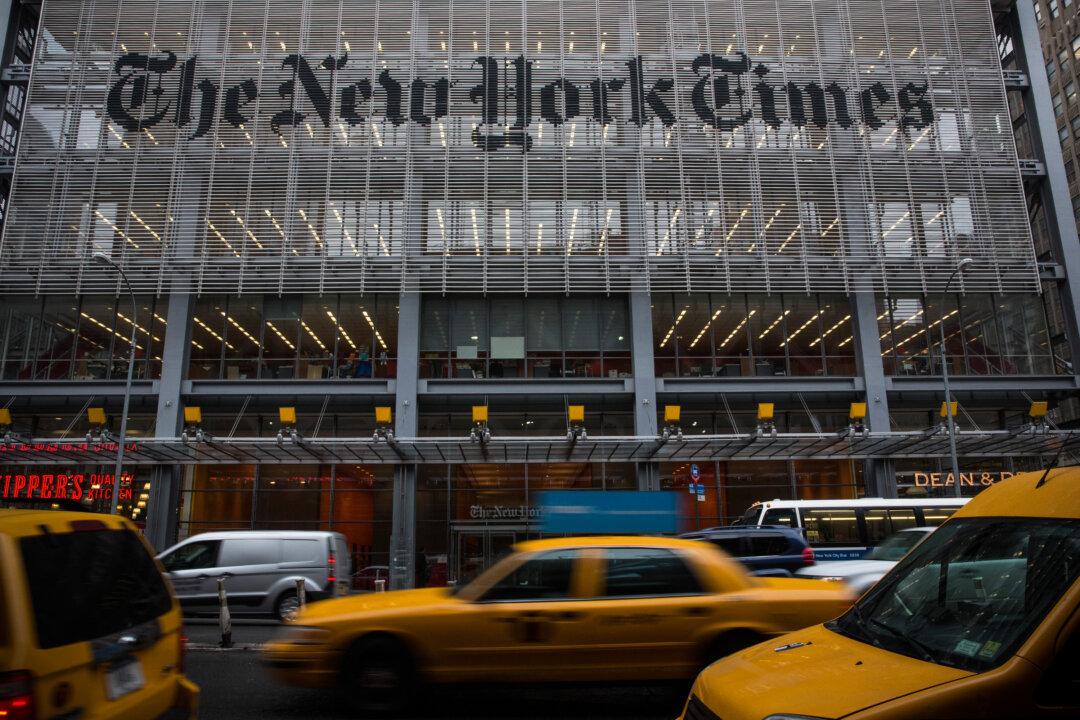A New York Times editor has admitted that the paper was not “rigorous enough” when it cited now disproven anonymous sources for a story that incorrectly represented former New York Mayor Rudy Giuliani’s contact with the FBI.
The New York Times was one of the three media outlets that published the erroneous claim that Giuliani was briefed by the FBI that he was targeted by a Russian intelligence influence operation during the time when he was investigating incriminating information about the Biden family. The other two outlets were the Washington Post and NBC News.




